THE PASO ROBLES CAB CAMP
LOOKED TOWARD THE CALIFORNIA REGION’S SUSTAINABLE FUTURE
story by Christina Barrueta / photos by Cal Bingham
The Paso Robles CAB (Cabernet and Bordeaux) Collective (PRCC) was established in 2012 to champion the Cabernet and red Bordeaux varieties that make up more than 60% of all plantings in the region. Located approximately midway between San Francisco and Los Angeles, this Central Coast winegrowing area was recognized as an AVA in 1983 and has since been divided into 11 sub-AVAs: Adelaida District, Creston District, El Pomar District, Paso Robles Estrella District, Paso Robles Geneseo District, Paso Robles Highlands District, Paso Robles Willow Creek District, San Juan Creek, San Miguel District, Santa Margarita Ranch, and Templeton Gap District. Diverse soils, including prevalent calcareous clay and limestone, and wide diurnal temperature swings create ideal conditions for producing premier wines.
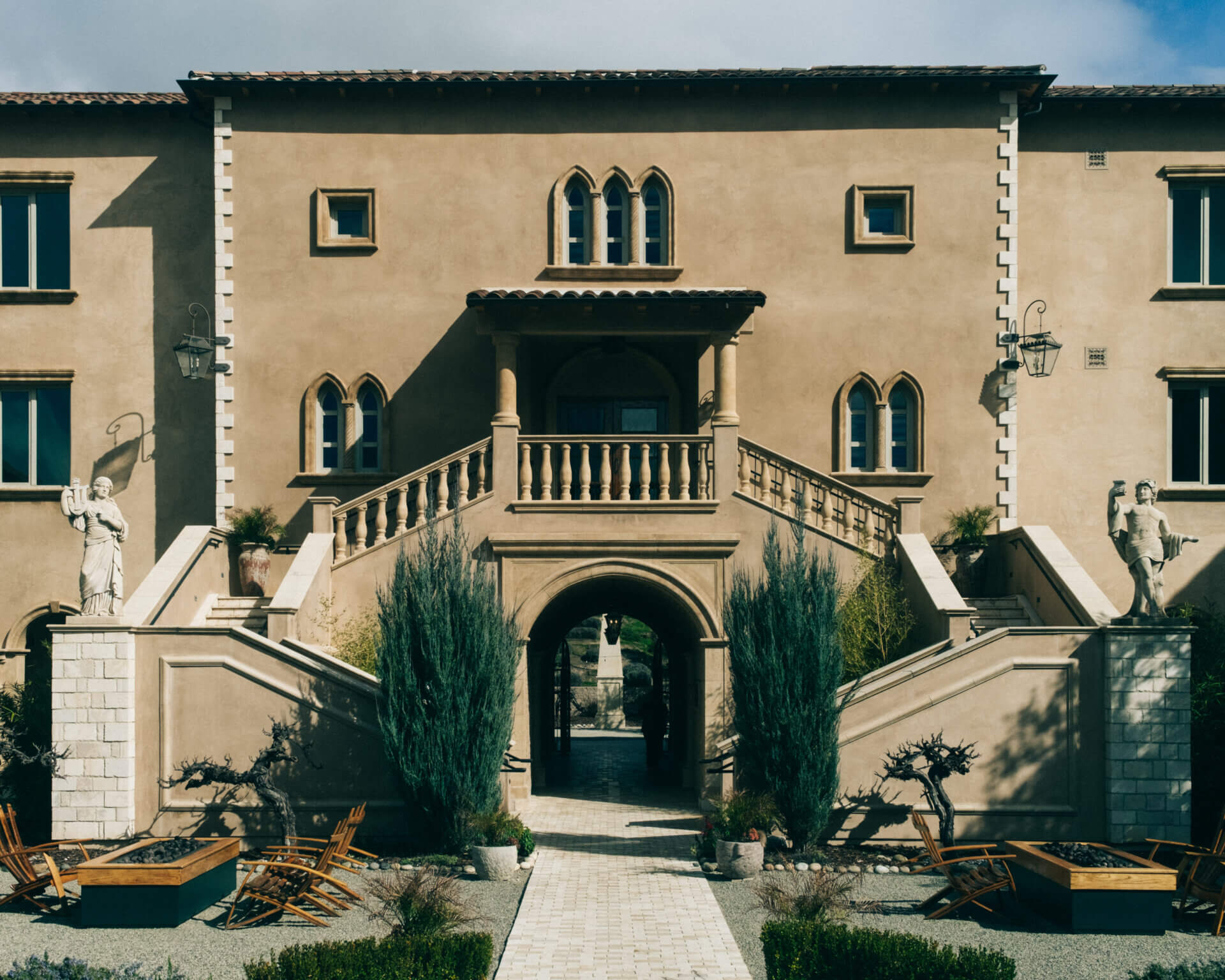
In March, I joined 50 of the country’s top sommeliers, restaurateurs, and wine buyers for a three-day immersive CAB Camp sponsored by The SOMM Journal to delve into Paso’s Bordeaux varieties and the role sustainability plays in its viticulture. Encompassing winery tours, seminars, and tastings, it was an unforgettable opportunity to learn more about the lauded wines coming out of Paso and to engage with the vintners and producers who are introducing them to worldwide acclaim.
day one
As we gathered for lunch at the beautiful Allegretto Vineyard Resort in the Estrella District, PRCC executive director Linda Sanpei introduced owner-winemaker Douglas Ayers. “When I first met Douglas in 2015, he told me he was a gardener and that he was building a bed and breakfast,” said Sanpei with a chuckle. “It turns out that the bed and breakfast was this rather magnificent resort with 171 rooms and suites.” While we dined on pasta Bolognese and pollo arrosto paired with Allegretto’s Malbec, Cabernet Sauvignon, and Rosé of Malbec, Ayers welcomed us to his 20-acre property. “I’m just a humble gardener having fun,” he said with a smile before sharing the importance of being environmentally responsible. “We practice biodynamic farming as stewards of the land, and the sacredness of this land is what I try to express in winemaking.” He expanded on this philosophy as we toured the property complete with alpacas and sheep that graze vineyards planted to Cabernet, Vermentino, Viognier, Merlot, and Tannat.
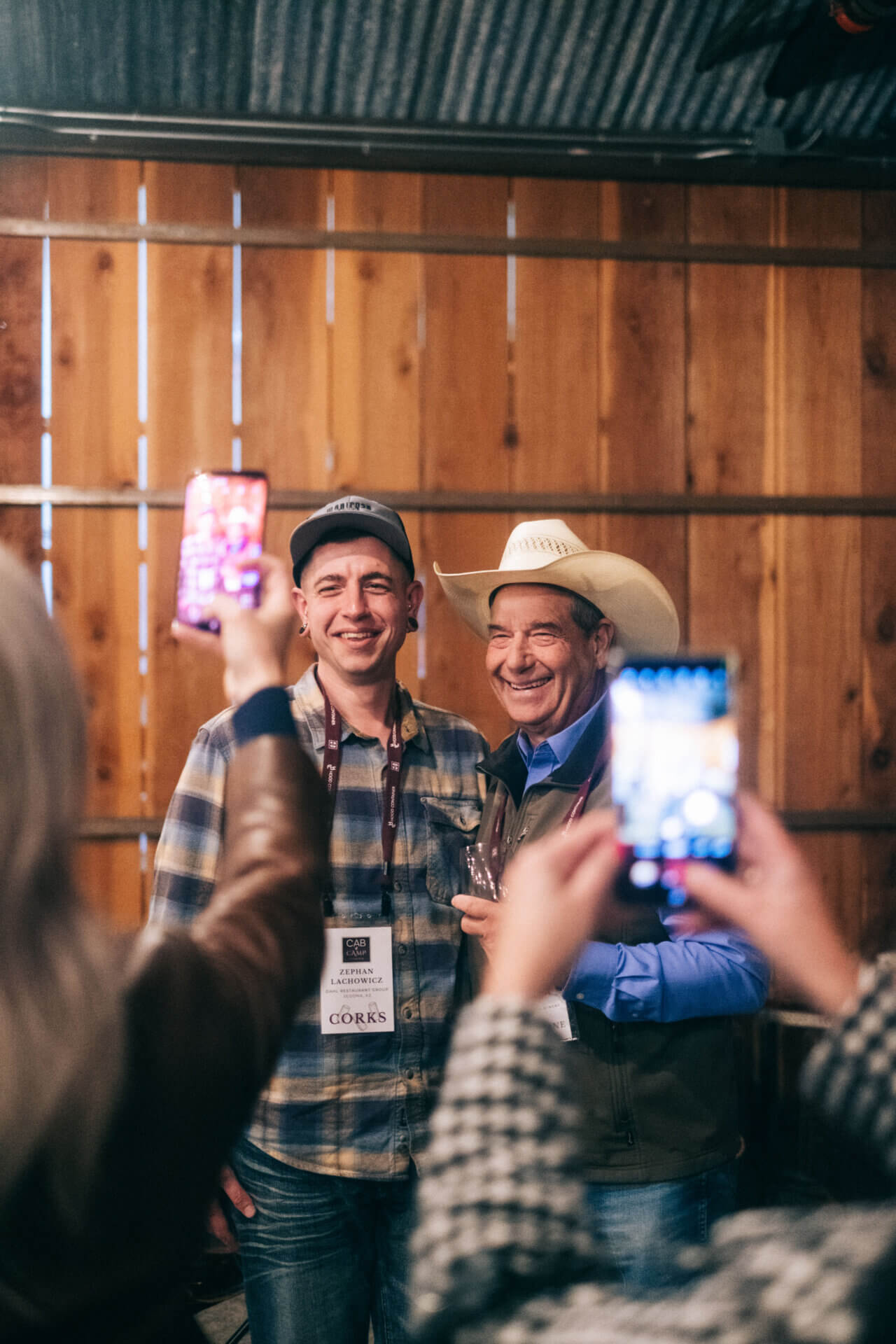
Next we headed to the Santa Margarita Ranch AVA, along the way picking up Doug Filipponi, co-owner of Ancient Peaks Winery. As we drove through its 14,000 acres of rolling hills, made verdant from recent rains, he shared its history and pointed out its SIP (Sustainability in Practice) Certified vineyard blocks. Our destination was the Santa Margarita Adventures ziplining center, where he shared a bit of trivia: “There are six ziplines now, but our first was named Renegade after a Syrah blend you’ll have tonight. It’s also a little like our personalities.”
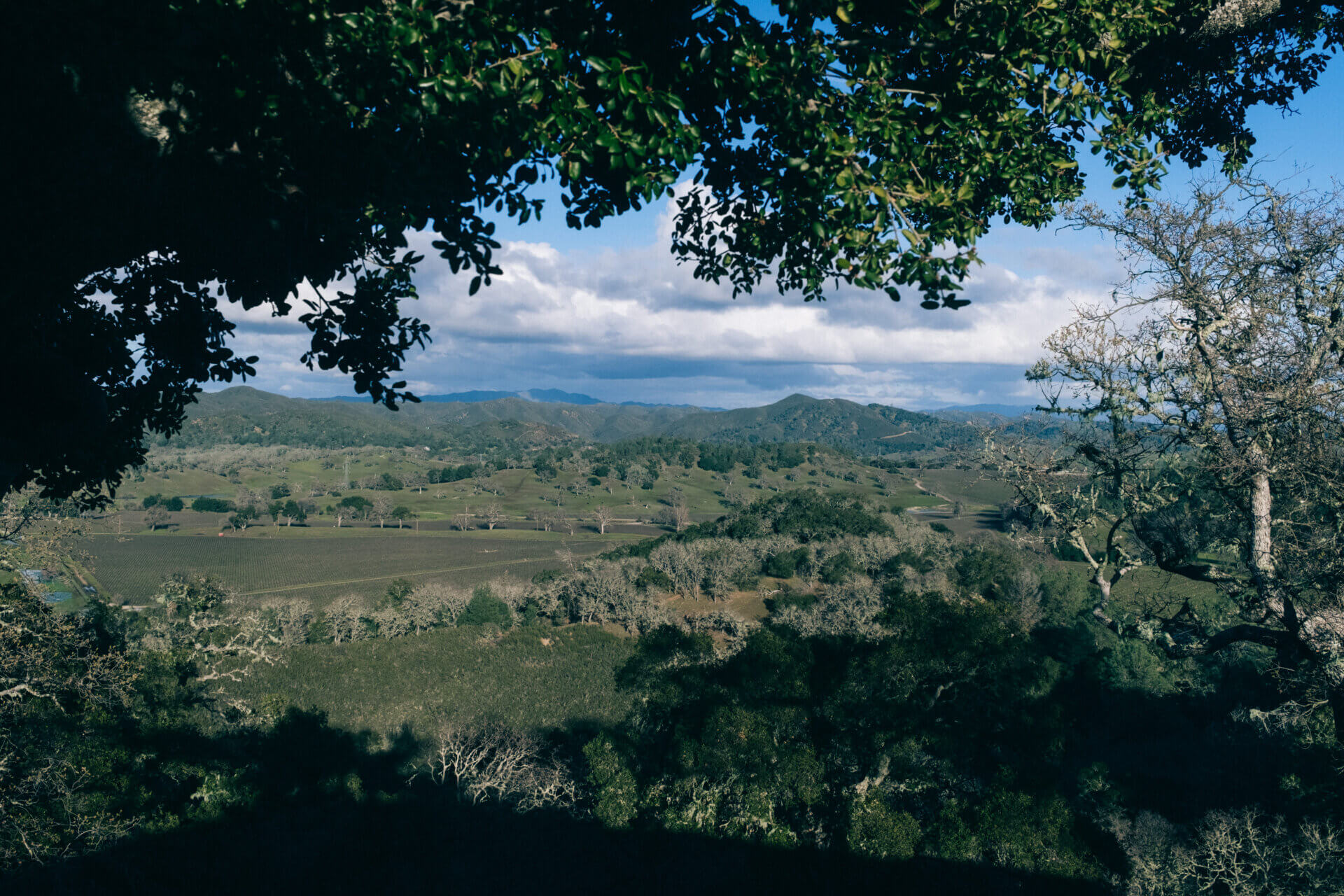
Upon arrival, our group parted ways—some to admire the vineyards from above, and others, like myself, to board vintage open-air Hummers for a foraging tour. As we trundled across shallow streams and past Angus cattle, Ancient Peaks co-owner Karl Wittstrom and naturalist Jacqueline Redinger spoke about the ranch’s flora, fauna, and topography, at one point passing around the fossilized oyster shells that mark ancient seabeds on the property. Our journey ended at sunset with cheese and wine on Oaks Veranda followed by a short ride to Oyster Ridge Barn, the ranch’s scenic event venue, for our “Power Blends” dinner, where winemakers and campers mingled over a main course of boeuf bourguignon—a hearty match for elegant Bordeaux red blends such as Ancient Peaks’ rich and plush Oyster Ridge cuvée combining Cabernet Sauvignon, Cabernet Franc, Petit Verdot, Merlot, and Malbec as well as the aforementioned Renegade, a blend of Syrah, Petit Verdot, and Malbec with notes of rich blue fruit and roasted coffee.
day two
After breakfast at Robert Hall Winery in the Geneseo District, we joined managing director Caine Thompson for a fascinating seminar on regenerative viticulture. As sustainability lead for parent company O’Neill Vintners & Distillers, Thompson is helming an ambitious 48-acre case study for becoming Regenerative Organic Certified (ROC). Though the winery is already certified by the California Sustainable Winegrowing Alliance (CSWA), ROC is a new standard with additional requirements for soil health, animal welfare, and social fairness. “It includes grazing animals, zero pesticides, minimal tillage, and paying staff a living wage,” said Thompson. For example, mealybug-eating beetles are brought in for pest control. “We partner with an insectary to grow a predator called the ‘mealybug destroyer,’ Cryptolaemus, and use drones to drop them across the vineyard,” he added.
To measure the regenerative effects on soil, fruit, and wine, 5 acres were marked as a control, while 43 were converted to regenerative organic farming. “It’s the same soil, and the same clones and rootstock are all planted at the same time to minimize variables,” said Thompson, who noted that one beneficial result has been improvements in grape-juice yield: “There’s less water runoff, the canopy is larger, and the fruit is more hydrated and intact.” The resulting wine displays a richer vibrancy, as evidenced by our side-by-side tastings. “We’ve been so encouraged by the results that we’re now converting the rest of the estate, which is 130 acres,” Thompson asserted.
Journalist and moderator Matt Kettmann continued the discussion during a seminar titled “Sustainability: Organic, Biodynamic, Sustainable & Regenerative.” On the panel, Thompson was joined by Douglas Ayres of Allegretto Wines, Hope Family Wines director of vineyards Stasi Seay, and winemakers Craig Reed of Castoro Cellars and Marty Spate of Riboli Family Wines. We tasted through some of their Cabernets as each shared their efforts in sustainability and environmental stewardship. “I don’t think sustainability is the fence line,” remarked Seay, who aided in drafting the SIP certification program. “Sustainability is about constant improvement. What else can we be doing?”
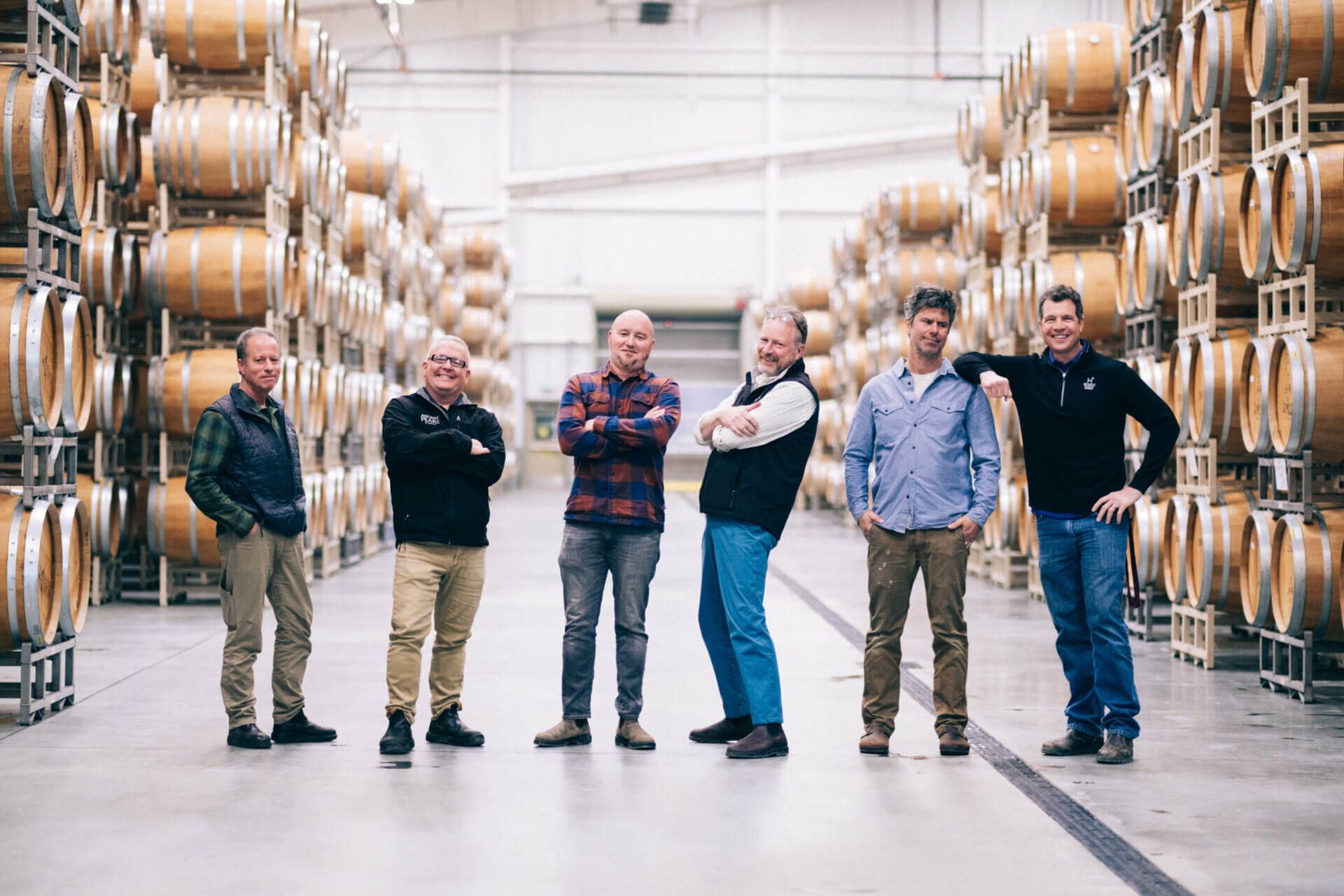
With these thoughts to ponder, we headed to the Riboli Family Winery and Event Center for a tour, lunch, and panel discussion. As associate winemaker Todd Jenkins guided us through the winery and production facility powered by solar panels, he noted that “the three pillars of the [Riboli] family are family owner[ship], sustainable winemaking, and estate vineyards. All of our vineyards in Paso and 1,000 acres in Monterey County are sustainably certified by the CSWA, and so is our winery; only 5% or so wineries can make that claim.”
Kettmann next served as moderator for a discussion on the “Fab Five” varieties of Bordeaux. It featured winemakers Soren Christensen of Hearst Ranch Winery (who poured Malbec), Mike Sinor of Ancient Peaks (Merlot), Damian Grindley of Brecon Estate (Petit Verdot), Jason Joyce of Calcareous Vineyard (Cabernet Franc), and Kevin Willenborg of Vina Robles Vineyards & Winery (Cabernet Sauvignon). Panelists weighed in on each variety’s characteristics, including Christensen, who quipped, “Malbec is the Botox of Bordeaux—it perks everything up.” With this knowledge in hand, we entered into a blending session, with guests using beakers, funnels, and pipettes to create their own wine from the featured bottles; the winning submission would be announced during the evening’s festivities at DAOU Family Estates.
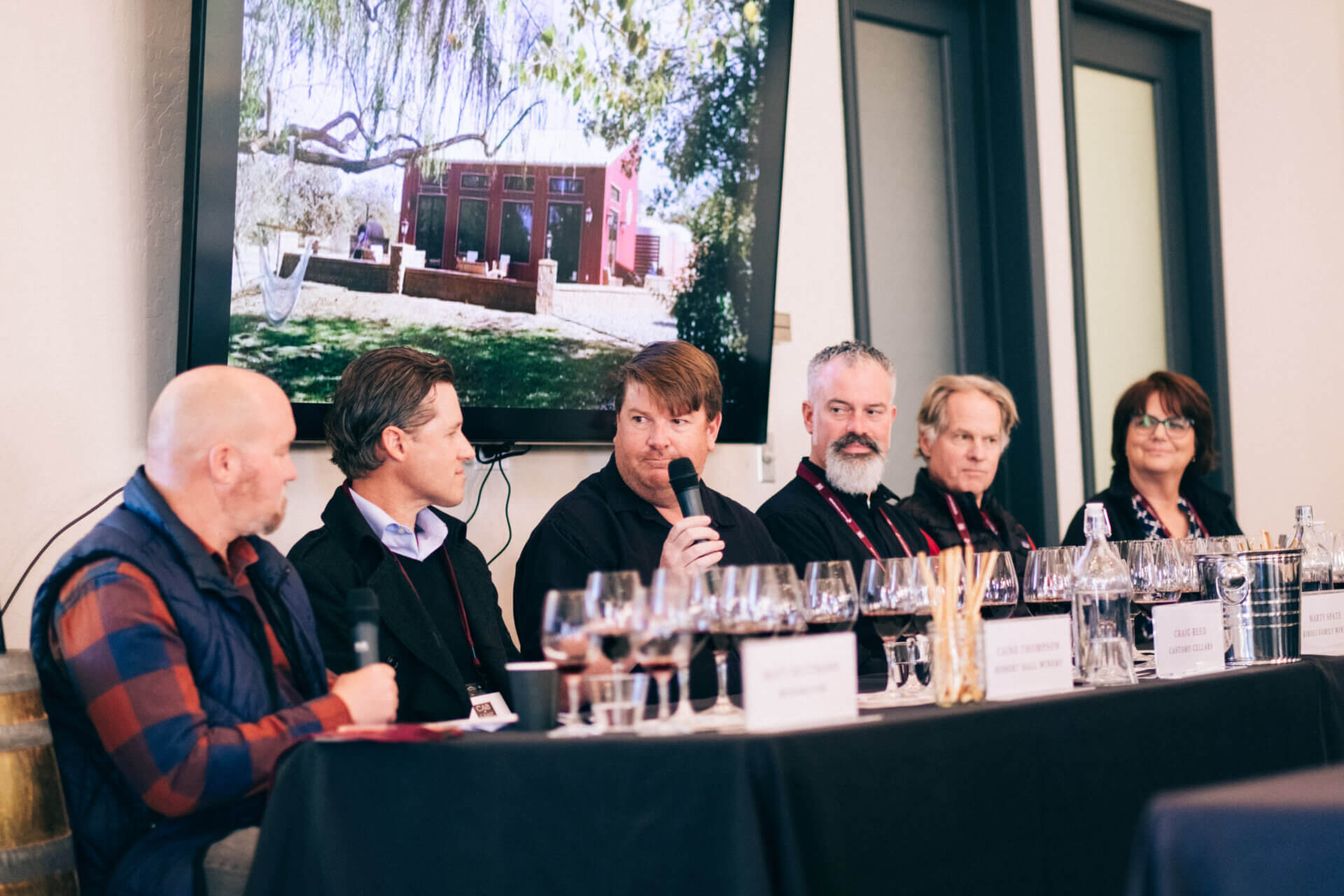
On the way up DAOU Mountain, lively chatter gave way to appreciative murmurs as we were rewarded with one of the country’s most stunning vineyard panoramas. The highest-elevation winery on the Central Coast, DAOU Family Estates sits at 2,200 feet in altitude above the hills of the Adelaida District. Greeted with sunset views and glasses of Sauvignon Blanc, we were led past rows of steeply sloped vines and banks of fragrant lavender to take our seats around flickering firepits. Reserve Cabernet and Sequentis Merlot were poured and hors d’oeuvres passed as we settled in to learn more about DAOU and the brothers who founded one of the state’s most celebrated wineries.
“We’re only about 14 miles from the ocean, so that breeze that you feel is coming through Templeton Gap and bringing that beautiful maritime influence right over this vineyard,” senior vice president of strategy and business development Maeve Pesquera began. “Looking around, it seems like a foregone conclusion that Paso was meant to be a Cabernet and Bordeaux region and that this vineyard was always here. In reality, just 15 short years ago, there was nothing here except for an empty mountain, two brothers, incredible vision, and a whole lot of courage.”
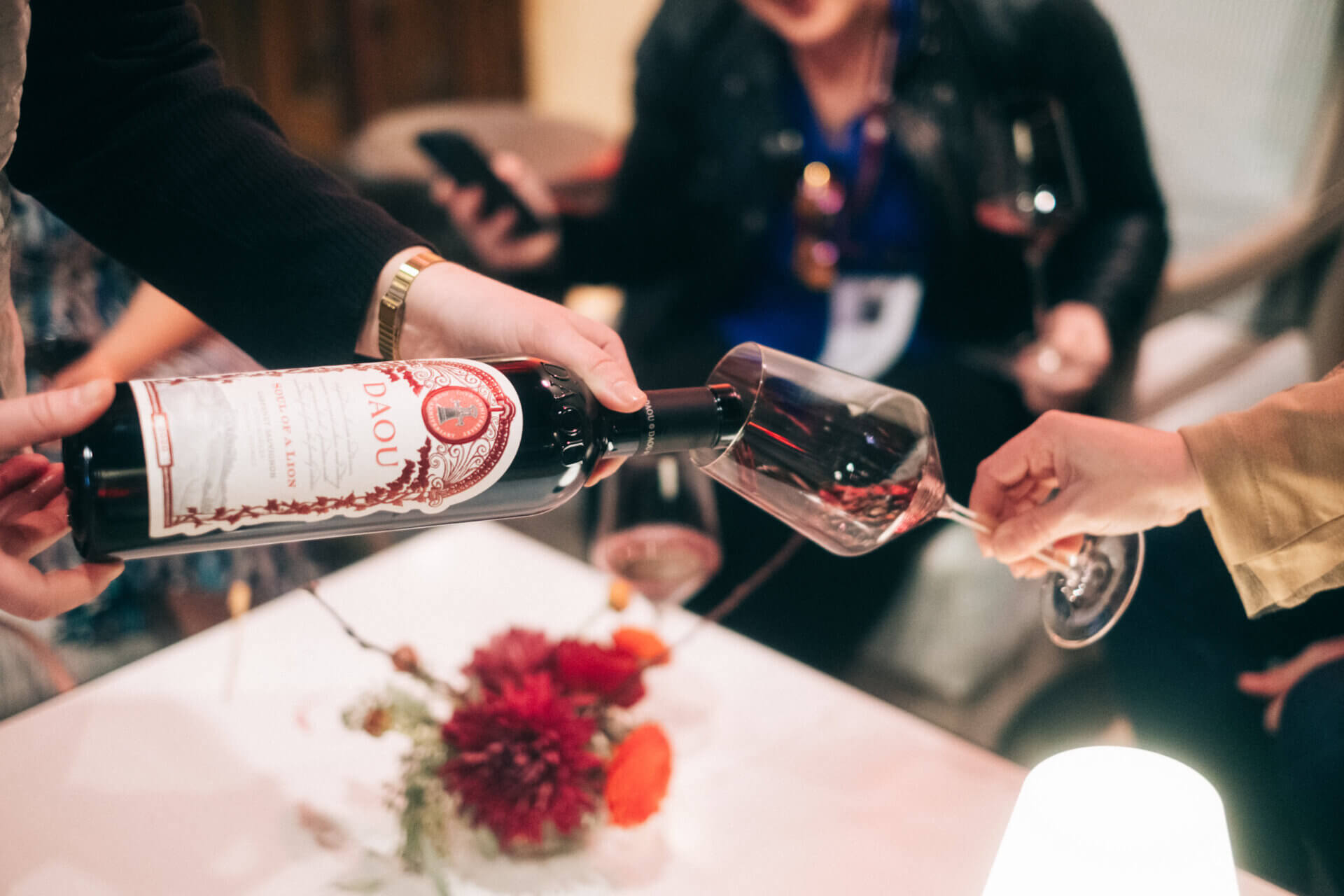
Born in Lebanon, Georges and Daniel Daou enjoyed a happy childhood in what was then known as “the Paris of the Middle East” until the first rocket strike of Lebanon’s civil war hit the sidewalk in front of the Daou home. The injured family was forced to flee and rebuild their lives in France, where Daniel discovered his passion for wine through a glass of Château Cheval Blanc.
The brothers attended the University of California, San Diego, before founding a successful software company, Daou Systems, which they eventually sold to pursue their passion project. Thus began Daniel’s eight-year-long worldwide quest to find the perfect terroir with calcareous soils like those found in Bordeaux—a search that led him to Paso Robles in 2005. At the time DAOU Family Estates was founded in 2007, Paso was known for Rhône varieties and Zinfandel. With Daniel serving as winemaker and Georges managing hospitality, the two were determined to showcase Paso as a producer of world-class Cabernet and Bordeaux wines. “A singular focus on quality and pure expression of terroir is the thread that’s woven through the entire tapestry,” said Pesquera as she shared one example: Daniel’s dedication to using native yeast. “He took 100 different native yeast samples from the mountain [and] sent them to a lab in Europe, where they cultured those native yeasts, [which] were ultimately narrowed down to 20. They ran trials on those yeasts for a number of years, and now we have a custom proprietary native yeast, DAOU 20, or D20.” In 2010, the first vintage of Soul of a Lion—named in honor of the brothers’ father—was released. It would go on to receive the highest rating of any domestic Cabernet Sauvignon outside of Napa and Sonoma.
“I really believe it was Daniel and Georges coming here that changed the perception of Paso Robles Cabernet for the world,” said Pesquera. “They brought famous Bordeaux and Cabernet clones that were not already in Paso and shared them, and they brought a group of vintners together to found the Paso Robles CAB Collective to work together as a community.”
Working with their neighbors also means that DAOU is a proponent of sustainability and, in keeping with its SIP certification, employs a number of eco-friendly and organic practices such as water conservation, composting, planting native drought-tolerant plants that attract pollinators, and providing nesting boxes for birds.
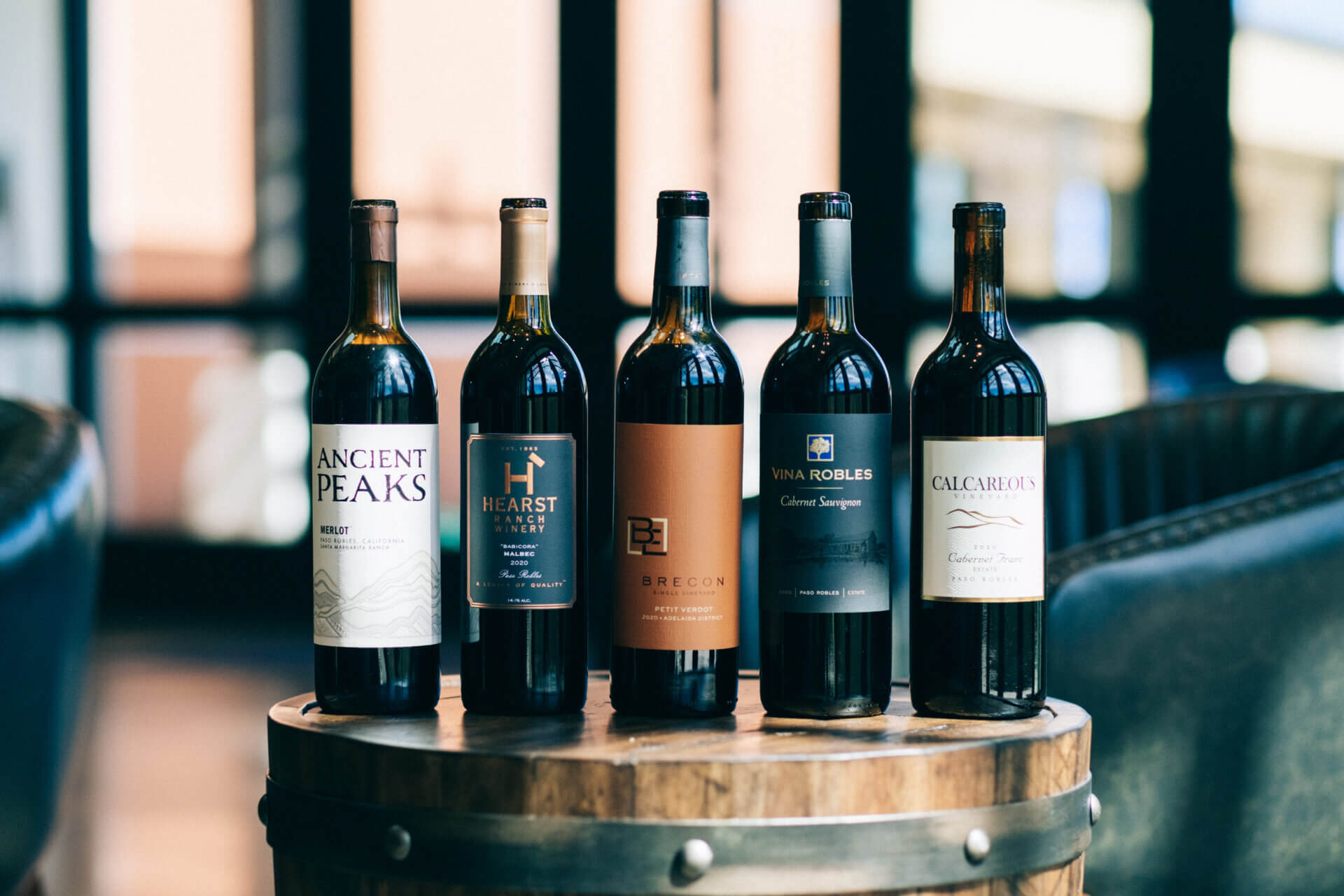
Hospitality is also fundamental to the Daou family philosophy, as was evident as the evening unfolded with an Arabic dance performance, large-format bottlings, and a Lebanese feast. While appreciative guests dined on rack of lamb, falafel, couscous, hummus, labneh, zhoug, and fattoush, a multitude of DAOU bottles were opened, including magnums and jeroboams of Soul of a Lion and Reserve Cabernet. Paso Robles icons like J. Lohr Vineyards & Wines founder Jerry Lohr chatted with campers as the winemakers behind LXV, Vina Robles, Copia, Allegretto, and Calcareous introduced themselves and joined the fun. As promised, Kettmann announced the winner of the blending competition, declaring Mark Noah, wine manager of Fishpaws Market in Baltimore, Maryland, the victor for his “joyous, approachable wine that had structure and complexity.”
And before the DJ turned up the music to fill the dance floor, Patrimony Estate director Erik Johnson introduced a special methuselah of Patrimony Cabernet Sauvignon. A sibling to DAOU, Patrimony Estate was launched in 2013 as a luxury brand. It immediately developed a cult following, with the first vintage selling out in less than two months. In addition to Cabernet, Patrimony Estate’s portfolio includes Cabernet Franc and Caves des Lions, a Cabernet Franc/Cabernet Sauvignon blend. DAOU fans can experience more of the family’s celebrated hospitality when Patrimony’s Bordeaux-inspired château and restaurant open in 2024.
Day three
While half of the CAB Campers traveled to Castoro Cellars and Calcareous Vineyard, the rest of us began with breakfast burritos at Hope Family Wines, where Stasi Seay and assistant winemaker Samantha Taylor discussed Paso’s soil. As Seay noted, “Paso Robles has over 45 soil types, but the one consistency is calcareous, and that’s what makes our Cabernets quite unique.” Soil variations were illustrated through a tasting of wines from three different districts: Estrella, where calcareous soil mixed with chert contributed bright fruit and acidity; Geneseo, where decomposed calcareous contributed more richness and backbone; and Creston, where gravelly silt loam produced deep color and complex tannins. “This is great,” joked proprietor Austin Hope, who surprised us with a brief visit. “It’s not even 8:30 and you guys are talking about dirt and drinking Cabernet.”
Our next stop was the home of Neeta and Kunal Mittal of LXV Wine for the “Comparative Barrel Tasting” seminar with winemaker Jeff Strekas. Against a backdrop of vineyards dotted with sheep, we sampled a 2021 Cabernet showcasing five different barrel influences, including what Strekas called “old neutral oak as a baseline,” before guessing what went into the producer’s new 2019 Meso Cabernet (Sylvain and Taransaud are among the cooperages it uses). “If you know Château Rauzan-Ségla, that’s my dream—that specific style, elegance, balance, and complexity,” said Neeta. “Meso has been ten years in the making, and this is the first time we’re introducing it.” A Cabernet from Gateway Vineyard in the Willow Creek District, it prompted many to declare it one of their favorites of CAB Camp.
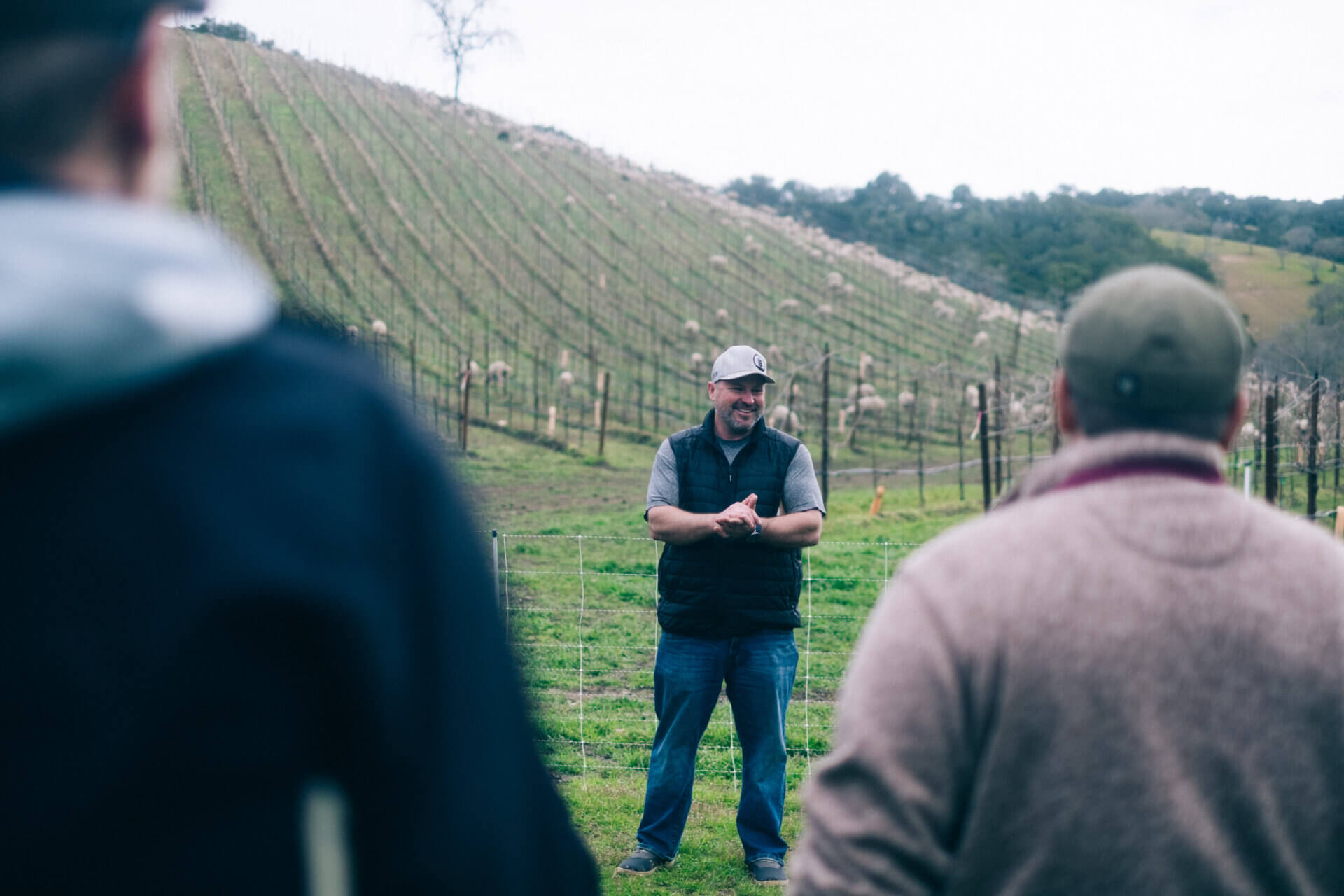
The group reunited at J. Lohr Vineyards & Wines for the “Crafting Quality” seminar with Jerry Lohr and vice president of winemaking Steve Peck. A Paso pioneer, Lohr planted his first vines in 1972 and now owns some 3,000 acres in the region, as he explained while we tasted through the producer’s Seven Oaks Cabernet, Pure Paso Red, and Hilltop Cabernet and Peck explored the science behind the wines. On our tour following the seminar, Lohr emphasized the winery’s commitment to sustainable practices, pointing to the solar array that, “when we built it 13 years ago, was and still is the largest tracking solar array in California’s wine industry” as well as to the land they’ve allotted to the California Irrigation Management Information System: “I’ve given up 7 acres; it’s a land-irrigation restoration program and is exceedingly important.”
Following a wine-paired lunch that included a barrel tasting of the 2021 Seven Oaks, we gathered for CAB Camp’s last seminar, “Cabernet Sauvignon: King of Paso Robles,” moderated by journalist Sara Schneider. Joining Peck on the panel were Neeta Mittal of LXV Wines, Gary Eberle of Eberle Winery, Matt Glunz of Glunz Family Winery, DAOU Family Estates vice president of enology and viticulture José Alberto Santos, and winemaker Scott Shirley of JUSTIN Vineyards & Winery. As Shirley succinctly summed up the region’s success with the king of grapes: “We have the calcareous soils; we have the heat that gets Cabernet Sauvignon and its thick skins ripe; and [we have] the proximity to the ocean with nighttime temperatures to maintain acidity, which is essential for longevity. Cabernet Sauvignon just thrives here.“
With our classes complete, it was time to enjoy wine in a convivial atmosphere—first at Opolo Vineyards, where gregarious national sales director Jeff Faber introduced us to the new Willow Cuvée from Opolo’s Reserve collection, and then at the Grand Tasting, where PRCC members showcased both older vintages and new releases. Finally, we found ourselves at The Restaurant at JUSTIN, where hospitality operations manager John Toigo informed us that, “aside from our Michelin star this year, we have a Michelin Green Star for sustainability practices, and we just received [a] Forbes Five-Star [award], which is really exciting.” Many new friendships were cemented over courses such as Creekstone filet and local mushroom risotto paired with 2019 JUSTIN Isosceles, and a special toast was raised to Gary Eberle, who decanted an imperial of Eberle 1981 Cabernet Sauvignon.
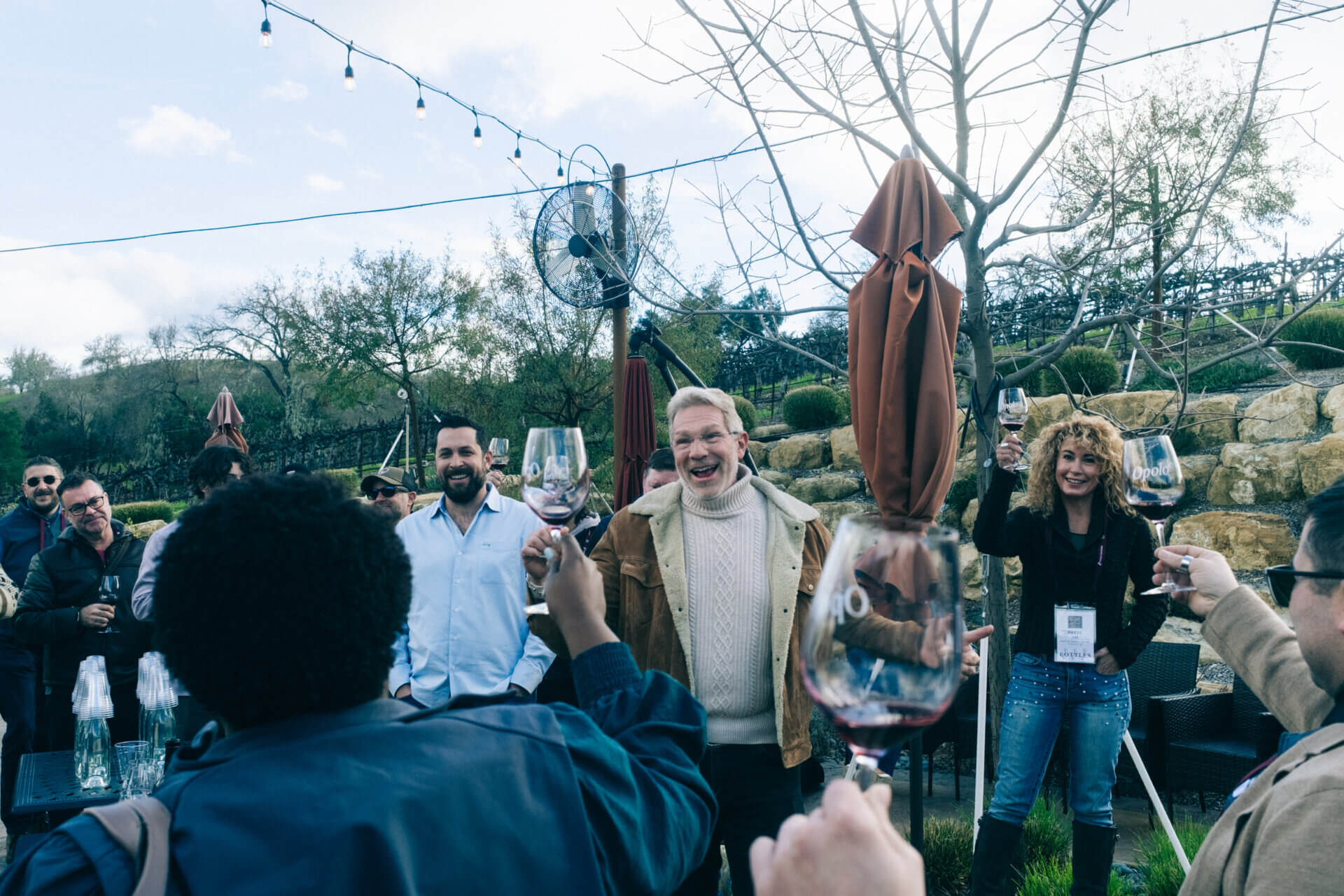
It was a fitting finale to our CAB Camp experience in that it bore witness to a passionate community. “We love Paso,” said Neeta Mittal. “There’s an intimacy here, there’s a fabric here, there’s love here.” Going hand in hand with that collaborative spirit is a commitment to sustainable farming, with the quality of both raising the bar on the quality of the wines. “Everyone’s success is shared,” observed Matt Glunz. “We’re all playing for Team Paso.”
